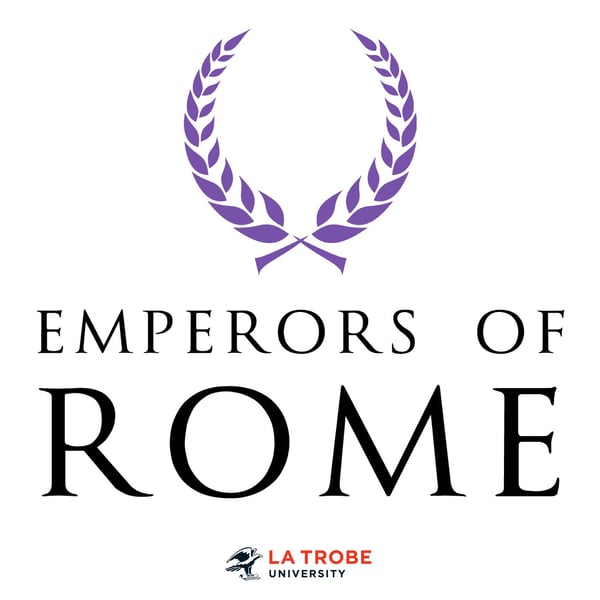Episode CXXIX - Tiberius Gracchus and the Landless Masses (Gracchi II)
Emperors of Rome
La Trobe University
4.8 • 1.7K Ratings
🗓️ 22 October 2019
⏱️ 29 minutes
🧾️ Download transcript
Summary
Any system of government that has been around for long enough is going to develop its problems, and that is definitely the case with the Roman republic. There was inequality between the ruling class and the common people, and if young Tiberius Gracchus decides to take up the cause, what’s the worst that could happen?
Guest:
Associate Professor Rhiannon Evans (Classics and Ancient History, La Trobe University)
Transcript
Click on a timestamp to play from that location
| 0:00.0 | Ahvey and welcome to Emperor's of Rome, a Roman history podcast from Latrobe University. |
| 0:11.2 | I'm your host Matt Smith and with me today is |
| 0:14.0 | Associate Professor Rianna Evans, senior lecturer in Classics and Ancient History at |
| 0:19.2 | Latrobe University. This is episode CXX, Tiberius Gracch and the landless masses. |
| 0:27.0 | As it's becoming apparent, any system of government that has been around for long enough is going to develop its problems and that is |
| 0:34.1 | definitely the case with the Roman Republic. There was inequality between the |
| 0:38.1 | ruling class and the common people and if young Tiberius Gracchus is to take up the cause, what's the worst that could happen? |
| 0:45.0 | He's Rianna Evans. |
| 0:47.0 | Tiberius Gracus. He was the son of a man by the same name, and his mother was Cornelia, who was the son of a man by the same name and his mother was Cornelia who was the subject of our |
| 0:55.2 | previous podcast he was born by 162 b.c. he's a very important figure often seen as the beginning of a whole change in Roman society and |
| 1:06.7 | Roman politics hence the Scullard book from the Grackai to Nero, like the Grackai is the beginning of something and Tiberius |
| 1:16.4 | Grackus is the elder of the two Grackai. |
| 1:18.9 | I remember last year we did a series in Emperors of Rome called the beginning of the end of the Roman Republic and we put the beginning of the end at 133 BC |
| 1:29.8 | so his death is kind of like the start of the end of all these ideas and the start of new ideas. |
| 1:36.0 | Yeah, I think that although this is always a kind of a construct that historians use so we can have beginnings and |
| 1:45.2 | endings so we can have and everything's nice and neat. Yeah to make things neat |
| 1:48.8 | exactly in ways that real life isn't. Historians like like order. Who would have known? |
| 1:54.0 | There is some logic to this because much of what unravels later on, you can see is some kind of progression upon what Tiberius Gracchus was trying to do. |
| 2:06.0 | By the same token, you could almost certainly argue and would be able to more easily if we had more evidence, I think think that a lot of the forces he was |
| 2:14.2 | dealing with were already coming into being he's the one who starts to harness them |
| 2:18.0 | I suppose yeah I mean as we'll get into later on maybe perhaps the land reform ideas did not begin with him. |
| 2:26.1 | Yeah well certainly there had been recognition that there were problems. Yes. |
... |
Please login to see the full transcript.
Disclaimer: The podcast and artwork embedded on this page are from La Trobe University, and are the property of its owner and not affiliated with or endorsed by Tapesearch.
Generated transcripts are the property of La Trobe University and are distributed freely under the Fair Use doctrine. Transcripts generated by Tapesearch are not guaranteed to be accurate.
Copyright © Tapesearch 2025.

